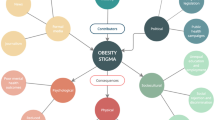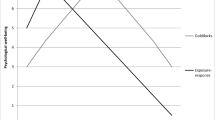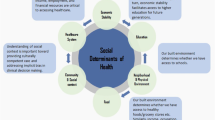Abstract
US Chinese immigrants undergo a transition to increased chronic disease risk commonly attributed to acculturative and dietary changes. Longitudinal data to confirm this are lacking. We examined acculturation and diet over time in 312 Chinese immigrant women in Philadelphia, recruited October 2005 to April 2008 and followed with interviews and dietary recalls until April 2010. Associations were modeled using generalized estimating equations to account for repeated measures over time. Increasing length of US residence was associated with a small (~1 %/year) but significant increase in acculturation score (p < 0.0001), which in turn was significantly associated with increased energy density of the diet, percent of energy from fat, and sugar intake, and lower dietary moderation score. These findings provide longitudinal evidence that acculturation increases with length of US residence and is accompanied by dietary changes. However, the changes were small enough that their health impact is unclear. Factors besides acculturation that affect immigrant health and that affect the acculturation trajectory itself warrant investigation.


Similar content being viewed by others
References
Goel MS, McCarthy EP, Phillips RS, Wee CC. Obesity among US immigrant subgroups by duration of residence. JAMA. 2004;292:2860–7.
Ziegler RG, Hoover RN, Pike MC, Hildesheim A, Nomura AM, West DW, et al. Migration patterns and breast cancer risk in Asian-American women. J Natl Cancer Inst. 1993;85:1819–27.
Stanford JL, Herrinton LJ, Schwartz SM, Weiss NS. Breast cancer incidence in Asian migrants to the United States and their descendants. Epidemiology. 1995;6:181–3.
Cook LS, Goldoft M, Schwartz SM, Weiss NS. Incidence of adenocarcinoma of the prostate in Asian immigrants to the United States and their descendants. J Urol. 1999;161:152–5.
Huh J, Prause JA, Dooley CD. The impact of nativity on chronic diseases, self-rated health and comorbidity status of Asian and Hispanic immigrants. J Immigr Minor Health. 2008;10:103–18.
Rajpathak SN, Wylie-Rosett J. High prevalence of diabetes and impaired fasting glucose among Chinese immigrants in New York City. J Immigr Minor Health. 2011;13:181–3.
Chiu M, Austin PC, Manuel DG, Tu JV. Cardiovascular risk factor profiles of recent immigrants vs long-term residents of Ontario: a multi-ethnic study. Can J Cardiol. 2012;28:20–6.
Pan Y, Dixon Z, Himburg S, Huffman F. Asian students change their eating patterns after living in the United States. J Am Diet Assoc. 1999;99:54–7.
Lv N, Cason KL. Dietary pattern change and acculturation of Chinese Americans in Pennsylvania. J Am Diet Assoc. 2004;104:771–8.
Satia JA, Patterson RE, Kristal AR, Hislop TG, Yasui Y, Taylor VM. Development of scales to measure dietary acculturation among Chinese-Americans and Chinese-Canadians. J Am Diet Assoc. 2001;101:548–53.
Liu A, Berhane Z, Tseng M. Improved dietary variety and adequacy but lower dietary moderation with acculturation in Chinese women in the United States. J Am Diet Assoc. 2010;110:457–62.
Kim S, Haines PS, Siega-Riz AM, Popkin BM. The Diet Quality Index-International (DQI-I) provides an effective tool for cross-national comparison of diet quality as illustrated by China and the United States. J Nutr. 2003;133:3476–84.
Rosenmoller DL, Gasevic D, Seidell J, Lear SA. Determinants of changes in dietary patterns among Chinese immigrants: a cross-sectional analysis. Int J Behav Nutr Phys Act. 2011;8:42.
Wong SS, Dixon LB, Gilbride JA, Kwan TW, Stein RA. Measures of acculturation are associated with cardiovascular disease risk factors, dietary intakes, and physical activity in older Chinese Americans in New York City. J Immigr Minor Health. 2013;15:560–8.
US Department of Health and Human Services. US Department of Agriculture. Dietary Guidelines for Americans, 2005. 6th ed. Washington, DC: US Government Printing Office; 2005.
US Department of Agriculture. MyPyramid.gov. 2005 December 8, 2009. http://www.mypyramid.gov/index.html.
Tsai JL, Ying Y, Lee P. The meaning of “Being Chinese” and “Being American”: variation among Chinese American young adults. J Cross Cult Psychol. 2000;31:302–32.
Ying Y-W, Han M, Tseng M. Acculturation and post-migration stress in middle-aged Chinese immigrant women in Philadelphia: variation between the Fujianese and the non-Fujianese women. J Hum Behav Soc Environ. 2012;22:20–38.
Ying Y. Migration and cultural orientation: an empirical test of the psychoanalytic theory in Chinese Americans. J Appl Psychoanal Stud. 2001;3:409–30.
Tseng M, Fang CY. Stress is associated with unfavorable patterns of dietary intake among female chinese immigrants. Ann Behav Med. 2011;41:324–32.
Salant T, Lauderdale DS. Measuring culture: a critical review of acculturation and health in Asian immigrant populations. Soc Sci Med. 2003;57:71–90.
Miller AM, Birman D, Zenk S, Wang E, Sorokin O, Connor J. Neighborhood immigrant concentration, acculturation, and cultural alienation in former soviet immigrant women. J Community Psychol. 2009;37:88–105.
Cheung BY, Chudek M, Heine SJ. Evidence for a sensitive period for acculturation: younger immigrants report acculturating at a faster rate. Psychol Sci. 2011;22:147–52.
Wright JD, Wang CY. Trends in intake of energy and macronutrients in adults from 1999–2000 through 2007–2008. NCHS Data Brief. 2010;49:1–8.
Gemming L, Doherty A, Kelly P, Utter J, Ni Mhurchu C. Feasibility of a SenseCam-assisted 24-h recall to reduce under-reporting of energy intake. Eur J Clin Nutr. 2013;67:1095–9.
Jia W, Chen HC, Yue Y, Li Z, Fernstrom J, Bai Y, et al. Accuracy of food portion size estimation from digital pictures acquired by a chest-worn camera. Public Health Nutr. 2014;17:1671–81.
Illner AK, Freisling H, Boeing H, Huybrechts I, Crispim SP, Slimani N. Review and evaluation of innovative technologies for measuring diet in nutritional epidemiology. Int J Epidemiol. 2012;41:1187–203.
Acknowledgments
This work was supported by Grants R01 CA106606 and P30 CA006927 from the National Institutes of Health. The authors are indebted to Ms. Wanzi Yang, Ms. Qi He, Ms. Rong Cheng, Ms. Bingqin Zheng, Dr. Zemin Liu, and Ms. Yun Song for their crucial work in the collection and management of data for this study. The authors also thank Dr. Yu-Wen Ying for her assistance with the General Ethnicity Questionnaire; Mr. Andrew Balshem, Joseph Bland, and the Fox Chase Cancer Center Population Studies Facility for their data management support; and Dr. Philip Siu and Dr. Thomas Yuen of Chinatown Medical Services for their generous assistance in participant recruitment.
Author information
Authors and Affiliations
Corresponding author
Rights and permissions
About this article
Cite this article
Tseng, M., Wright, D.J. & Fang, C.Y. Acculturation and Dietary Change Among Chinese Immigrant Women in the United States. J Immigrant Minority Health 17, 400–407 (2015). https://doi.org/10.1007/s10903-014-0118-4
Published:
Issue Date:
DOI: https://doi.org/10.1007/s10903-014-0118-4




